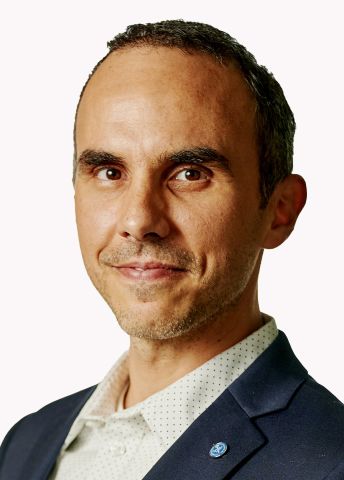
Wallenberg Academy Fellow 2023
Natural sciences
Dr Foivos Perakis
Stockholm University
Natural sciences
Dr Foivos Perakis
Stockholm University
How do biomolecules behave in the cell’s cramped environment?
The inside of a cell is packed with proteins, RNA, and other biomolecules. Researchers have discovered that this crowding in the cell results in a kind of condensate of biomolecules, like small molecular droplets, which appear to be important for the cell’s function. Wallenberg Academy Fellow Foivos Perakis will investigate these condensates to better understand how they work.
Cells can be described as extremely advanced chemical factories. To separate different processes, it is divided into rooms – organelles – with walls made from a fatty membrane. Within the organelles and their membranes, different biomolecules accumulate and work together to drive chemical processes.
Researchers once believed that proteins and other biomolecules float around relatively freely between the organelles, but it is now clear that the congestion in the cell means they can be packed together as membraneless droplets called biomolecular condensates.
These biomolecular condensates appear to play a key role in cell function. To learn more about how they work, Dr Foivos Perakis at Department of Physics, Stockholm University will develop a kind of microdroplet reactor, which can stimulate how the condensates form. He will then visualize the dynamics of the biomolecules in the condensate using extremely intense X-rays from new X-ray sources, such as MAX IV in Lund and the European XFEL in Hamburg.
The knowledge generated by Foivos Perakis will be fundamental to our understanding of how cells function, and could provide new insights into the development of Alzheimer’s disease.
Photo Patrik Lundin